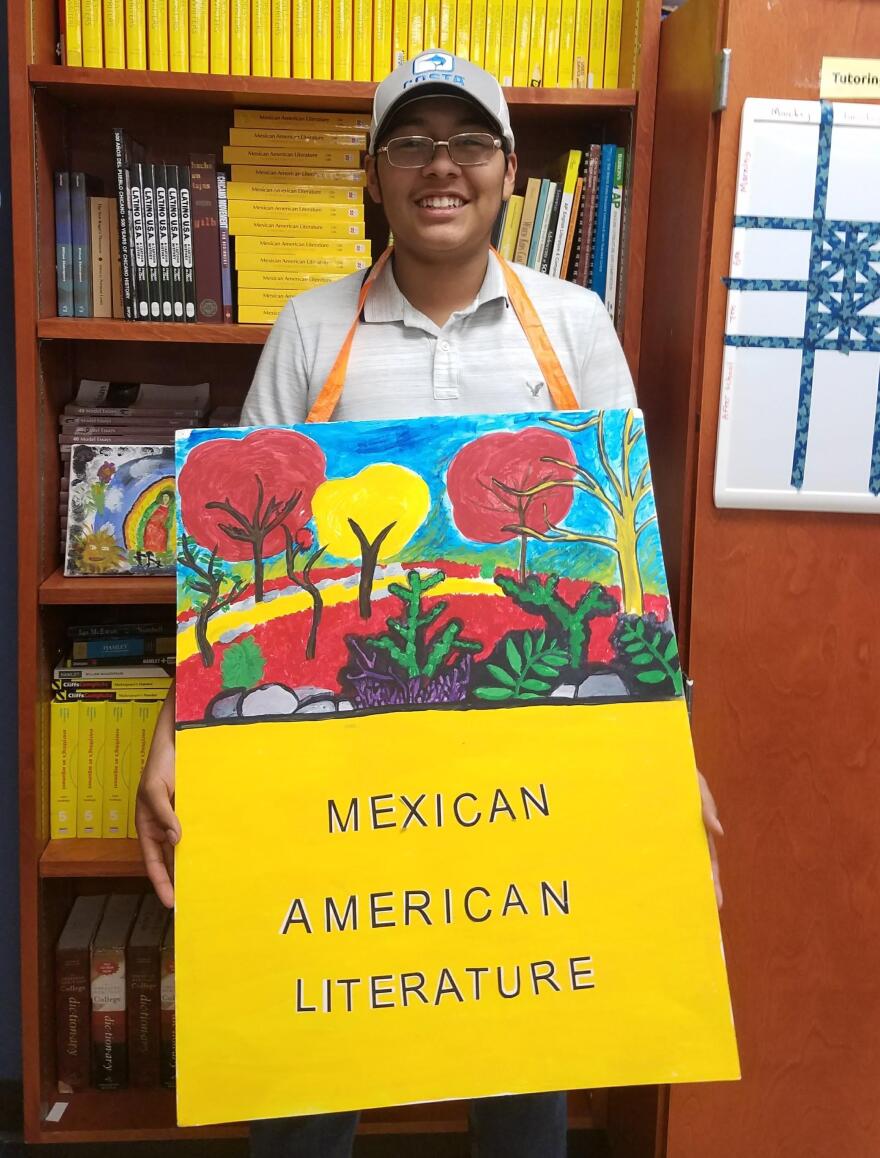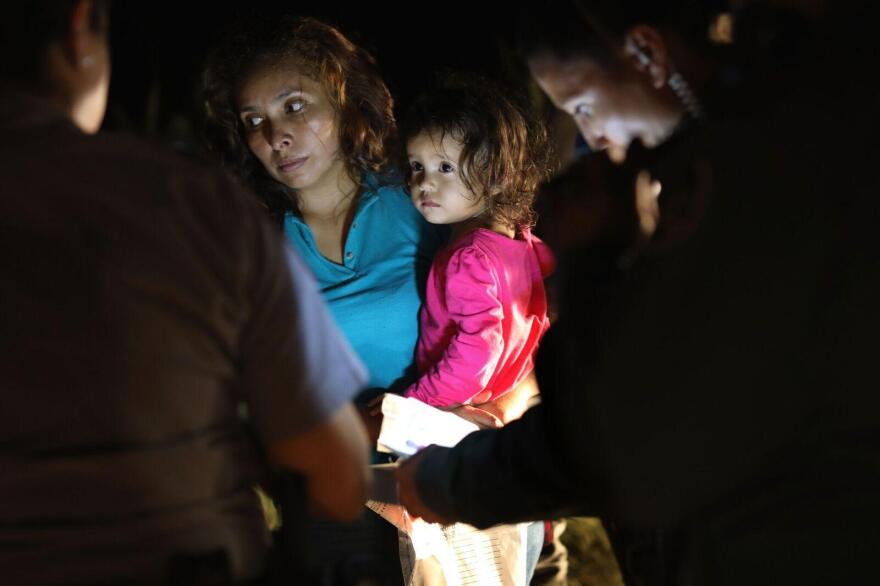This is our year in review.
- A Mexican-American literature course at a local high school (0:21)
- Regrets of a former Border Patrol agent (2:43)
- The hidden African-American history of San Antonio (4:46)
- A granddaughter of a Nazi (7:09)
- The dangers of reporting from the border (10:13)
- The descendants of the victims of a 100-year-old massacre (13:17)
- A former Texas slave who became a Mexican millionaire (17:17)

Mexican-American Literature Course Aims To Connect Students With Culture
Originally aired Jan. 17, 2018
When this story aired, Mexican American Studies was available to Texas public schools as an elective. We visited Stevens High School to see how teacher Andres Lopez uses the lives of his students to shape the course of his class. In the months following the airing of this story, the Texas Board of Education approved a Mexican American studies course, calling it Ethnic Studies: Mexican American Studies,” making it a core course, no longer subjecting it to elective status.


Stories From The Border & Beyond
Originally aired Feb. 6 and 13, 2018
Arizona resident Francisco Cantú is a former Border Patrol agent (2008-2012) whose book, “The Line Becomes a River: Dispatches from the Border,” has earned rave reviews for its inside perspective of the ethical struggles faced by Cantú while with the agency.
MORE | Subscribe to the podcast or find other Fronteras episodes


How African-Americans Shaped Bexar County's Landscape
Originally aired March 23, 2018
The 300-year-old story of San Antonio is entwined with that of the Spaniards, Mexicans, Native Americans, and Anglo settlers. But the African-American story of the Alamo City is not one that’s widely known. Everett Fly, an award-winning San Antonio architect and landscape architect, joined us to peel back the veil on the hidden history of San Antonio


'My Grandfather Would Have Shot Me’
Originally aired June 8, 2018
Jennifer Teege is a black woman who was adopted at a young age by a white German family. A random trip to the library as an adult led to her opening a book written by her birth mother, Monica Goeth, called “I Have to Love My Father, Don’t I?” Monica’s father was the Nazi commandant Amon Goeth, made famous in Steven Spielberg’s film “Schindler’s List.” Teege wrote about coming to terms with her family history in the book, “My Grandfather Would Have Shot Me: A Black Woman Discovers Her Family’s Nazi Past.”


Documenting Human Stories On All Sides Of The Border With John Moore
Originally aired Aug. 3, 2018
John Moore is a staff photographer and special correspondent for Getty Images. He has been covering all angles of the immigration debate for the last 10 years. His latest picture book is, “Undocumented: Immigration and the Militarization of the United States-Mexico Border.”


Massacre In A West Texas Border Town
Originally aired Sept. 21, 2018
On Jan. 28, 1918, 15 men and boys, age 15-72, living in the West Texas border town of Porvenir were taken to a nearby hill in the middle of the night, shot, and killed. The perpetrators were a company of Texas Rangers, U.S. Cavalry soldiers, and area ranchers. Monica Muñoz Martinez, an assistant professor of American Studies and Ethnic Studies at Brown University, said racism was the real reason behind the massacre. Joining Martinez on the program was Arlinda Valencia, president of the Ysleta Teachers Assoc in El Paso, and descendant of Porvenir Massacre victim, Longino Flores.


How A Former Texas Slave Became A Millionaire
Originally aired Nov. 23, 2018
Karl Jacoby, professor of history at Columbia University, is the author of “The Strange Career of William Ellis: The Texas Slave who became a Mexican Millionaire.” Ellis was born in Victoria just before Juneteenth, the day in 1865 when slavery in Texas was abolished. He used his light complexion and knowledge of Spanish to reinvented himself as Guillermo Enrique Eliseo, a Mexican, Cuban, or Hawaiian businessman – his identity varied depending on the occasion and on the geography. Joining Jacoby on the program was Chip Williams, great-grandnephew of Ellis.
Norma Martinez can be reached at norma@tpr.org and on Twitter @NormDog1




